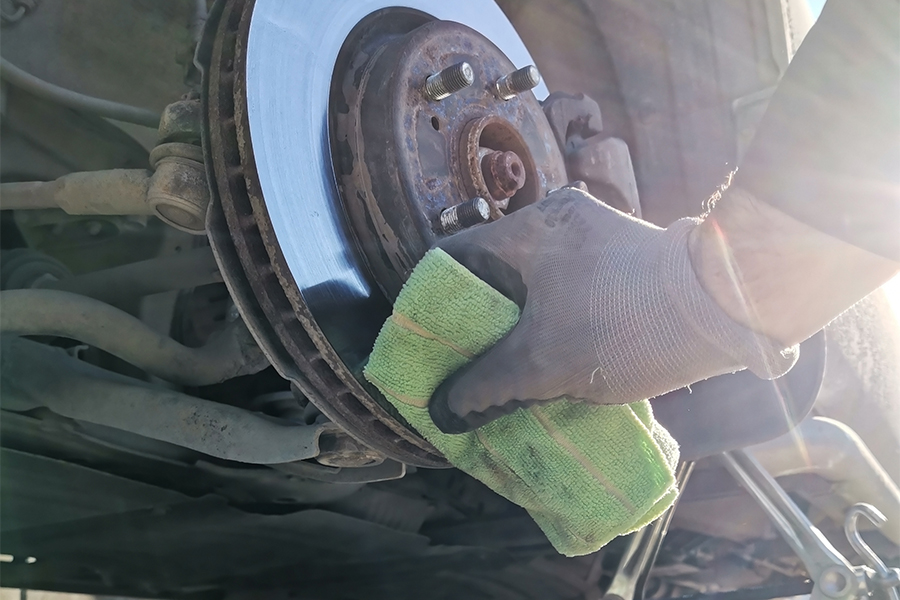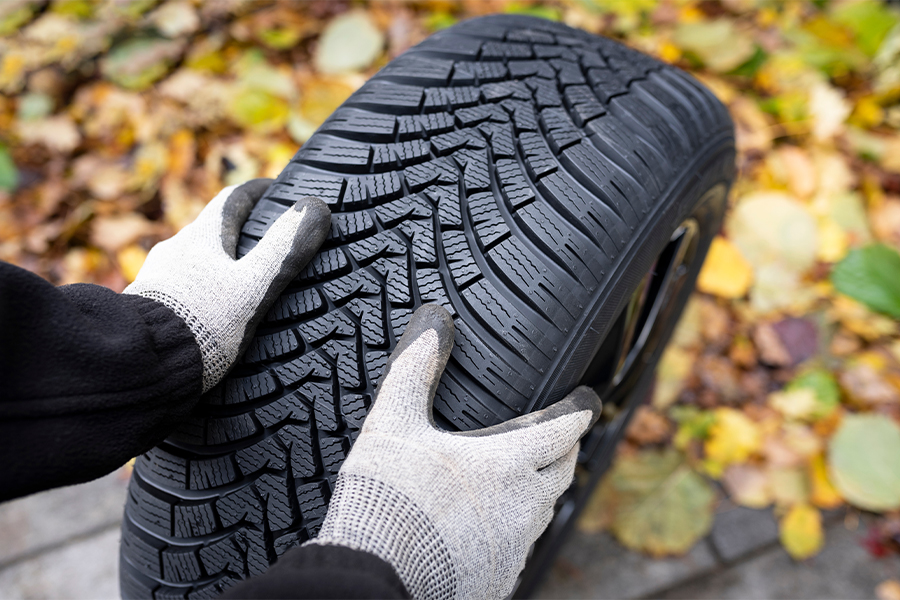Table of Content
What are the work scenarios for automotive workers?
The work scenarios for automotive workers can include the following aspects:
Production line in the workshop: Automotive workers carry out various tasks on the production line in the workshop, such as installing components, connecting parts, and performing welding and assembly work. They need to ensure that the components are correctly installed according to the process flow, ensuring production efficiency and quality.
Maintenance and repair workshop: Automotive workers perform various operations during the process of repairing, inspecting, and adjusting vehicles, such as replacing parts, adjusting engines, and detecting faults. They need to use various tools and equipment to ensure the normal operation of the vehicles.
Quality control: Automotive workers are responsible for inspecting assembled vehicles to ensure that they meet quality standards. They may use various measuring tools and equipment to test the dimensions, appearance, and functionality of the components in order to detect and resolve potential issues early.
Testing and debugging: In the automotive production process, workers may perform testing and debugging on newly assembled vehicles to ensure their proper functioning. This might involve starting the engine, testing the electrical system, and checking vehicle performance.
Transportation and distribution: Automotive workers are responsible for transporting newly produced vehicles from the production line to warehouses or dealerships. They may drive various types of vehicles, such as trailers or trucks.
Warehouse and logistics management: Automotive workers may also be responsible for warehouse and logistics management, including receiving, storing, loading, and shipping. They need to ensure the accurate and efficient delivery of car parts and components, and handle related documentation and records.
In summary, the work scenarios of automotive workers cover multiple aspects, including production, maintenance and repair, quality control, testing, transportation and distribution, warehouse and logistics management, ensuring the smooth operation of car manufacturing and maintenance processes.
In the automotive industry, in what work scenarios are safety gloves used? What is the significance of using safety gloves?
Work scenarios in the automotive industry where safety gloves may be used include:
Production line in the workshop: Automotive workers may use safety gloves to protect their hands while performing tasks such as assembly, welding, and painting on the production line. These gloves can prevent scratches, burns, and chemical exposure.
Maintenance and repair workshop: When repairing and adjusting vehicles, automotive workers may need to handle sharp edges of mechanical components, various lubricants, coolants, cleaning agents, and other chemicals. Using safety gloves can prevent hand injuries and protect the skin from irritation and damage caused by these chemicals.
Quality inspection: In the process of inspecting components and vehicle quality, automotive workers may need to handle parts, tools, and equipment. Using safety gloves can reduce damage to the skin and prevent fingerprints, grease, and other substances from affecting the product.
Testing and debugging: Safety gloves may be used when performing automotive testing and debugging, which involves handling electrical systems, engines, and other components. They can protect against electric shock, high temperatures, and other hazardous factors that could cause hand injuries.
Transportation and distribution: Safety gloves may be used when loading and unloading vehicles or handling heavy objects in warehouses or during transportation, providing extra grip and protecting against abrasions or injuries.
The significance of using safety gloves lies in providing various protections:
Worker safety: Safety gloves can reduce the risk of hand injuries, preventing harm from chemicals, cuts, abrasions, and heat sources.
Product quality protection: In the production line and quality control process, safety gloves prevent fingerprints, grease, and other contaminants from affecting product quality, ensuring compliance with standards.
Chemical protection: For work scenarios that involve exposure to chemicals, such as handling chemicals and cleaning agents, safety gloves provide protection by reducing contact with the skin and preventing allergic reactions or chemical burns.
Hygiene protection: Safety gloves prevent workers’ hands from coming into contact with contaminants, bacteria, and other harmful substances, protecting their health and hygiene.
Improved work efficiency: Using safety gloves can increase workers’ confidence and comfort, enabling them to perform tasks more confidently and efficiently.
Reduced occupational disease risk: Some automotive work may involve exposure to hazardous substances, such as chemicals. Safety gloves can reduce the absorption and damage of these substances to the skin, reducing the risk of occupational diseases.
What types of safety gloves are used in the automotive industry?
Cut-resistant gloves: In automotive production lines, tasks such as cutting and assembling components may be required. Cut-resistant gloves provide protection against injuries from sharp edges.
Heat-resistant gloves: In welding, painting, and high-temperature processes, heat-resistant gloves are necessary to protect hands from high temperatures and flames. These gloves are made of heat-resistant materials to prevent burns and flame combustion.
Electrically insulated gloves: For work involving electrical systems and electronic devices, electrically insulated gloves prevent electric shock and ensure worker safety. Insulated gloves are made of materials that resist electrical current and touching live parts.
Chemical-resistant gloves: In environments involving chemicals, solvents, and chemical cleaners, chemical-resistant gloves protect the skin from corrosion and damage by chemicals.
Mechanical work gloves: For tasks such as maintenance, debugging, and installation of mechanical components, mechanical work gloves made of durable and puncture-resistant materials are used to provide protection against impact, abrasion, and damage.
Fine operation gloves: When performing delicate operations, assembling small components, and inspecting product quality, fine operation gloves protect hands and provide sensitive tactile feedback.
Anti-static gloves: Anti-static gloves prevent static electricity buildup, reducing the risk of fires or damage to electronic components. They are used in scenarios where static electricity interference needs to be avoided or electronic devices need to be protected.
Shock-absorbing gloves: For tasks involving the use of vibrating tools or operating vibration equipment, shock-absorbing gloves reduce the impact on hands and joints.
When choosing automotive work gloves, what are the key aspects that automotive workers pay the most attention to?
Suitability: Gloves must be suitable for the specific tasks performed. Different work scenarios require different types of gloves, such as assembly, welding, cleaning, and transportation. The material, durability, and functionality of the gloves should match the specific work requirements.
Protective performance: The most important aspect of gloves is their protective performance and whether they can provide sufficient protection. This includes characteristics such as cut resistance, abrasion resistance, chemical resistance, heat resistance, as well as anti-static and insulation capabilities.
Comfort: The comfort of gloves is a key consideration. Comfortable gloves reduce worker fatigue and discomfort, thereby improving work efficiency. Factors such as fit, flexibility, and breathability are important considerations for gloves.
Flexibility: For tasks that require fine operations and sensitive touch, the flexibility of gloves is crucial. Workers want gloves that do not impede hand flexibility and dexterity.
Durability: Automotive work often involves frequent contact with various mechanical parts and tools, so durability is important. Gloves should be long-lasting and able to resist repeated use, friction, and other daily wear to minimize the need for glove replacement.
Size fit: Glove size fit is crucial to ensure the proper use of gloves. Gloves that are too large or too small can affect comfort and safety during work.
Slip-resistant design: In work scenarios involving wet or slippery surfaces, a slip-resistant design provides better grip, preventing hand slipping and mishaps.
Price and cost-effectiveness: Price is also a factor when choosing gloves. People generally look for gloves that offer good value for the price, meaning they are reasonably priced and meet their needs.
Compliance and safety: People usually pay attention to whether the gloves comply with relevant safety standards and regulations, such as CE certification (EU) or ANSI/ISEA certification (US).
Why choose GIVENSAFETY as the supplier for automotive gloves?
Stable and high-quality product quality: We strictly control every step of the production process, from yarn customization, yarn coating, glove weaving, dipping process, to glove packaging. We use high-quality materials such as imported nitrile and PU coatings to ensure that every pair of gloves is comfortable to wear, highly abrasion-resistant, durable, and provides sufficient protective performance.
Extensive product line: We have production lines for latex-coated, PU-coated, and nitrile-coated gloves, and our product range covers nitrile oil-resistant gloves, PU gloves, carbon fiber anti-static gloves, cut-resistant gloves, shock-absorbing gloves, mechanical gloves, and more to meet the various needs of the automotive industry.
Customization ability: We can design and produce customized gloves based on customers’ specific work environments to meet different demands, which has been one of our advantages.
Compliance and safety: Our glove products comply with relevant regulations and standards such as CE certification (EU) and ANSI/ISEA certification (US).
Innovation and research and development: We continuously track industry trends and carry out innovation and research and development to introduce new gloves that meet evolving work requirements.
Stable lead time: We promise on-time delivery of products and can provide prompt support in urgent situations.
Customer service and support: We provide high-quality customer service and technical support to respond quickly to customer inquiries and needs, building a good cooperative relationship with customers.




